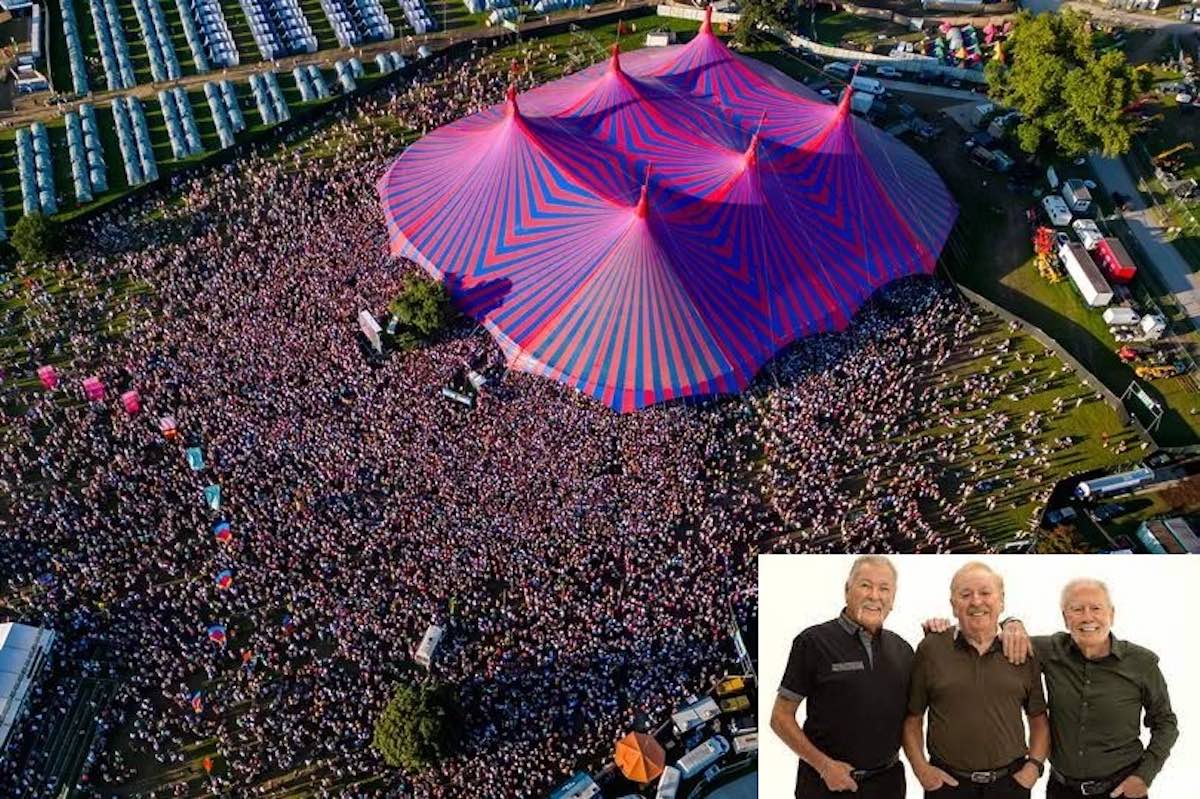
Ireland’s young people have delivered a stunning rebuff to critics of the Wolfe Tones rebel band when they turned out in record-breaking numbers to see them at the country’s largest music festival.
Every year, an artificial controversy is generated by unionists when the band plays in the West Belfast festival in August. The controversy always centres on a lyric which includes the words ‘Ooh, aah, up the ‘RA [Up the IRA]’ in the song Celtic Symphony, which was written in 1987 and inspired by graffiti seen in Glasgow.
After the legendary band saw record crowds at the much larger Electric Picnic festival over the weekend, lead vocalist Brian Warfield said that “the young people of Ireland have spoken in numbers that Joe Duffy could never get”.
He was referring to the prominent Irish radio broadcaster who tapped into the annual controversy. On his Liveline show on RTÉ, Duffy publicly berated the Wolfe Tones as “awful, brutal old rubbish.”
The handwringing and lack of comprehension by post-dated commentators such as Duffy only bolsters the support for the band – but there was still shock at the scenes at the Electric Picnic, with thousands gathering far beyond the entrance to the arena in the largest crowd ever seen for a covered venue at the event.
Even those out of earshot of the band sang along with gusto in an act of defiance which rocked the establishment.
Commentators who called for a halt to Celtic Symphony include 26 County radio hosts Ciara Kelly and Shane Coleman, who have admitted their knowledge of the conflict in the North stems mainly from TV news reports. Former Taoiseach Bertie Ahern also patronisingly declared young Irish people should ‘educate themselves’ on the ‘ferocious trauma’ of the conflict.
But events jumped the shark when the US heiress of an Irish estate, Karen Ievers, quickly dubbed ‘Big House Karen’ on social media, resigned from the upper-class lobby group ‘Historic Houses of Ireland’ in protest at the hosting of the event in the grounds of Stradbally Hall in County Laois.
The gig came on the same weekend that a loyalist paramilitary march was held in west Belfast in honour of UVF sectarian killer Brian Robinson – and involving a former member of the serial-killing Shankill Butchers – but which failed to receive any attention from Ahern or any other politician or commentator.
Introducing the song, Brian Warfield revealed the anti-censorship reason for the song’s success: “[Never] tell an Irish person they can’t sing a song because you know what they’ll do, they’ll go out and they’ll sing it over and over again, just to spite you.”
Festival-goers said the atmosphere at the gig was something truly special and “electric”. One fan said: “Fans outside could barely hear the magic. Those further back could hear nothing. And still they stayed and sang. I’ve never seen that before.”
Speaking afterwards, Mr Warfield said: “I think people got their answer about the right to sing a song and I think at the end of the day, the people of Ireland have spoken.”
He said the ‘Celtic Symphony’ song is about Glasgow Celtic and tells the story about the football team and “what they stand for and who they are and they always supported Ireland going back to the Troubles.
“People love it. It is a great song, I can’t stop people singing it and I don’t think anybody… people think they have the power to stop people singing that song... it won’t happen.”
![[Irish Republican News]](https://republican-news.org/graphics/title_gifs/rn.gif)
![[Irish Republican News]](https://republican-news.org/graphics/title_gifs/harp.gif)

